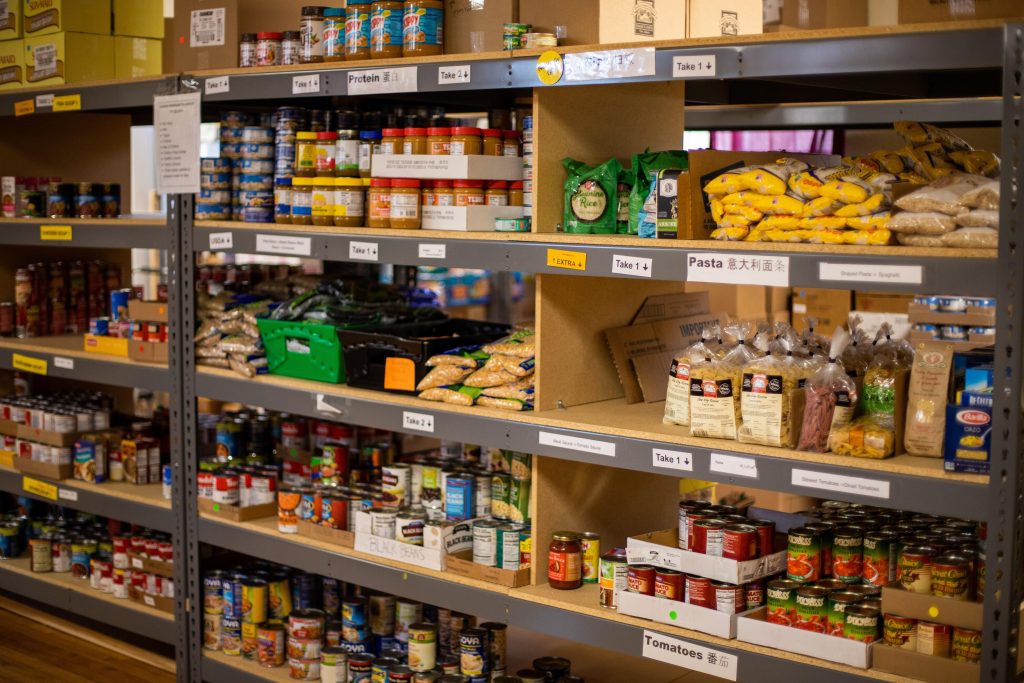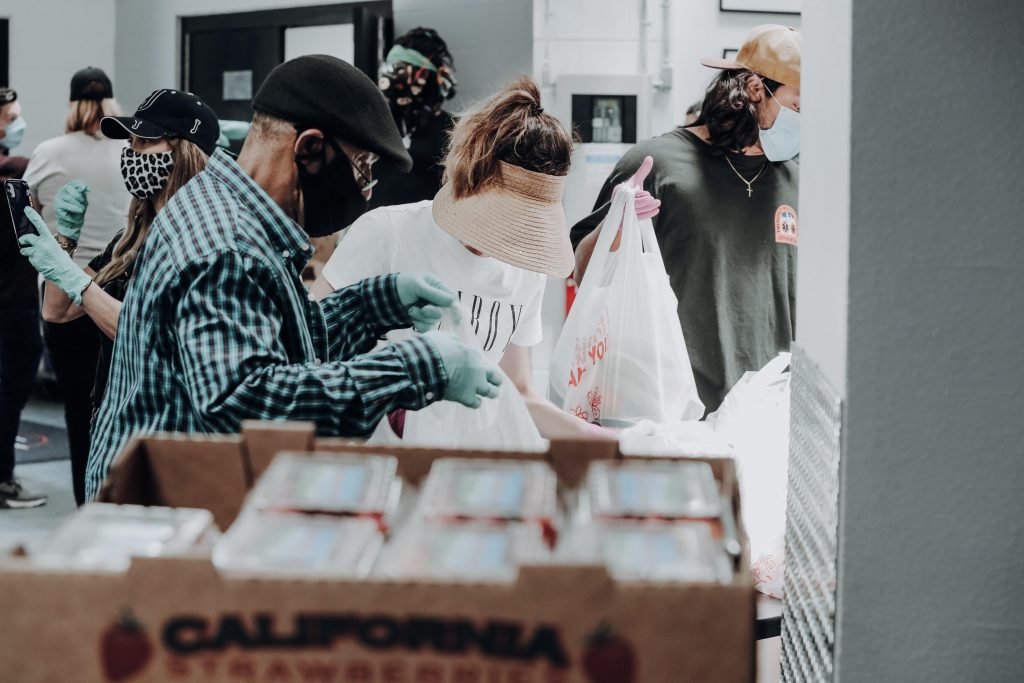I was born in Mexico City and I was an international student in the United States for several years. I received my bachelor’s degree at the University of New Mexico in Albuquerque and it was a time of my life I will never forget. I know firsthand all of the amazing experiences that studying abroad has to offer; meeting new people, getting to know another culture, practicing a language… Every day is a new adventure and a learning experience. But I also know very well that it can have unexpected obstacles, including financial struggles and homesickness.
Sadly, a very common and growing problem amongst international students is hunger due to food insecurity. Understanding food insecurity can help you and the people you care about identify and combat those negative circumstances. Read on to learn more about what you can do to fight food insecurity and find resources if you or someone you know are facing food insecurity.
What is food security?
According to the Food and Agriculture Organization of the United Nations (FAO), “Food security exists when all people, at all times, have physical and economic access to sufficient, safe and nutritious food that meets their dietary needs and food preferences for an active and healthy life” (World Food Summit, 1996). The United States Department of Agriculture (USDA) suggested it is an “economic and social condition of limited or uncertain access to adequate food.”
Essentially, food insecurity exists when people do not have access to enough food but also when the food they DO have access to is not varied or healthy enough. This can look like skipping meals because there is not enough money to buy food, or it can be that the only restaurants and stores nearby are lacking fruits and vegetables, it can even be that the places that are affordable and close enough to households are fast food or gas stations. In some cities, people who do not have cars also struggle with food insecurity because food options are too far away for them to access.
How does it affect international/study abroad students?
According to many studies, about half of all college-level students experience food insecurity. This number is even larger among international students. Not having access to enough or the right food can affect students not just physically, in the form of hunger and exhaustion, but it can also affect them mentally. Being hungry can make students have a hard time with concentration, sleep, and even cause anxiety and depression. All of this is added to the normal stress of school, as well as a constant reminder of financial stress and it can contribute to feelings of shame and isolation. This is especially true right now that we are facing a global pandemic.
But please remember that you are not alone. There are many campus resources available to you to help with food, financial aid, and mental health.
What are some resources for those affected by food insecurity?
Fortunately, there are ways to help combat food insecurity and help students and other individuals have access to the food they need. Many universities have campus pantries, where they provide students with free groceries and other necessities on a daily, weekly, or monthly basis. Many cities also have community pantries or fridges that allow students and community members to share and take food when it is needed. Lastly, there are food banks and soup kitchens, where you can both donate food and be provided with it.
Below we have shared a list to help you find these resources near you*:
On-campus Pantries:
Food banks and Soup kitchens:
In the United States – https://www.feedingamerica.org/find-your-local-foodbank
https://www.wheelsforwishes.org/news/find-a-local-soup-kitchen/
New Mexico – https://www.rrfb.org
https://www.nmfoodbanks.org
Texas – https://www.centraltexasfoodbank.org
http://www.feedingtexas.org
https://ntfb.org
California – https://www.cafoodbanks.org/our-members/
https://www.foodpantries.org/st/california
Illinois – https://www.chicagosfoodbank.org
https://www.feedingillinois.org
https://www.foodpantries.org/st/illinois
https://dailybreadsoupkitchen.com
Massachusetts – https://haleyhouse.org/what-we-do/food-programs/soup-kitchen/
https://www.foodpantries.org/st/massachusetts
https://www.gbfb.org
https://www.mass.gov/how-to/find-a-local-food-bank
New York – https://www.foodbanknyc.org
https://feedingnys.org
https://www.cityharvest.org
Florida – https://www.feedingflorida.org/feeding-florida/florida-food-banks
https://www.foodpantries.org/st/florida
Washington – https://www.ballardfoodbank.org/
In Canada – https://www.foodbankscanada.ca
In Australia – https://www.foodbank.org.au
In the United Kingdom – https://www.trusselltrust.org/get-help/find-a-foodbank/
In India – https://www.indiafoodbanking.org
In Colombia – https://www.bancodealimentos.org.co
https://abaco.org.co
In Mexico – https://sibiso.cdmx.gob.mx/comedores-sociales-que-permanecen-abiertos
https://bamx.org.mx
What can I do to help reduce the effects on my community?
If you are fortunate enough to not be affected by food insecurity, you are in a position to help others who are; whether you are an international student or not, you can directly be part of the solution. Here are some ways you can help the efforts to end hunger:
- Volunteer at a food pantry, food bank, or soup kitchen.
- Donate money or food to food pantries and food banks.
- Reach out to restaurants and grocery stores about doing rescue programs for “Ugly food” or any surpluses they can donate.
- If your school or community doesn’t have one, start a campus pantry or community fridge.
- Encourage your school to invest in food affordability and access as well as counseling for students experiencing food insecurity and/or situations of homelessness.
- Volunteer at a farm or urban/community garden in your area.
- Contact your local and state representatives.
- Organize a food drive.
- Support and fight for initiatives such as the Supplemental Nutrition Assistance Program (SNAP).
- Volunteer or start grocery delivery programs.
- Spread awareness about this topic! The more people know about it, the easier it will be to identify and fight against it.
If you know of any more resources not listed here or you want to share the amazing things you have experienced as an international student, please share them below. We would love to read them!
https://uwcf.org/8-ways-to-help-people-who-are-food-insecure/
https://www.tomsofmaine.com/good-matters/helping-hands/ways-combat-food-insecurity-your-community
*Please keep in mind that this is not a definitive list — there are many more resources, but we wanted to provide a starting point.
Category: Health & Safety Abroad, International Students in the USA, School Resources, Study Abroad
Tags: campus pantries, community fridge, community pantries, financial stress, food affordability, food banks, food insecurity, global pandemic, international students, soup kitchens, study abroad students, studying abroad


